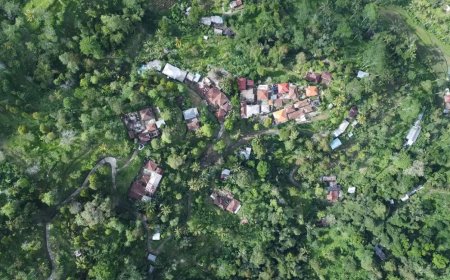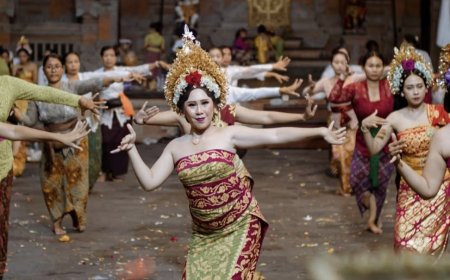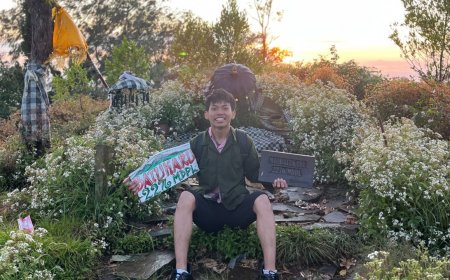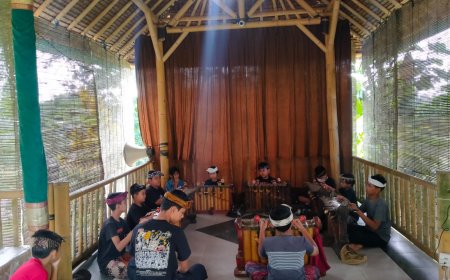The Dialogue of Purusa and Pradana in Majejiwan: The Creation of the Universe in the Representation of Cosmic Harmony
Balinese culture is renowned for its rituals that are rich in symbolism and profound meaning. One of the prominent rituals is the majejiwan dialogue, a sacred conversation performed during the mapaselang ceremony. As an integral part of religious tradition, this dialogue reflects the relationship between humans, God, the universe, and the social values in the lives of the Balinese community.
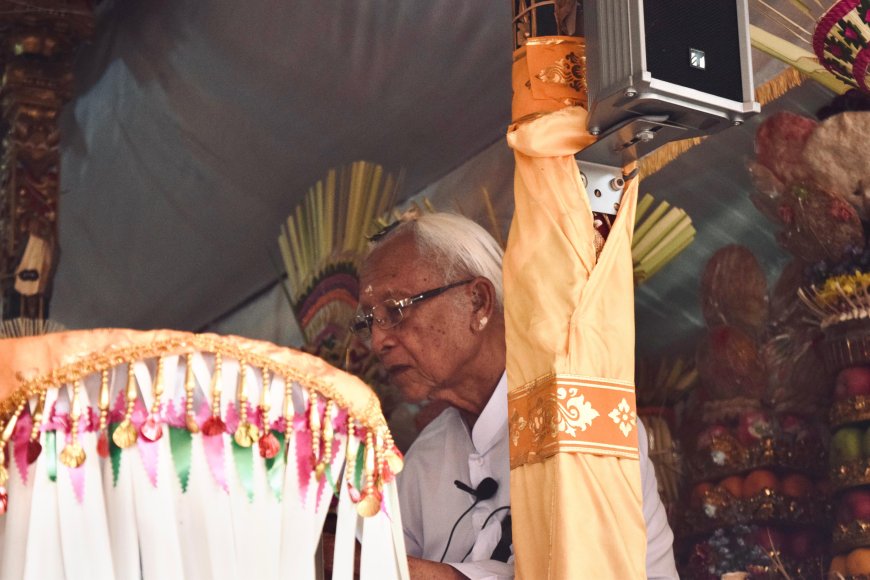
In Balinese Hindu tradition, language plays a vital role as the primary means of communication in religious rituals. One distinctive form of speech is majejiwan, a sacred dialogue performed during the Mapaselang ritual. This ritual is part of a series of significant ceremonies, such as Mamungkah and Ngenteg Linggih, which signify the purification of temples and the placement of God in His manifestations within sacred sites.The term majejiwan originates from Old Javanese, meaning "to enliven life" or "to bring life to the living." In practice, majejiwan is a sacred dialogue between a man and a woman, each representing purusa (masculine energy) and pradana (feminine energy). These principles are fundamental in Balinese Hindu belief, regarded as the origins of the universe's creation.
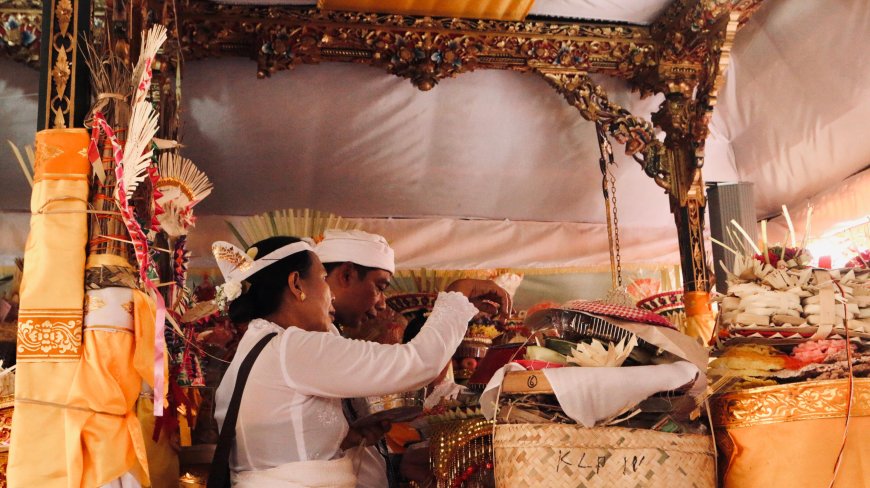
Preparation for the Majejiwan Ceremony at Bale Peselang (Source: Personal Collection)
The meaning and cultural function of majejiwan reflect the profound philosophy and spirituality of Balinese society. Theologically, majejiwan represents Purusa as consciousness (cetana) and Pradana as materiality (acetana), two eternal forces that complement each other in creating harmony in the universe. Cosmologically, this ritual reflects the creation of the world through natural elements such as the earth, sea, mountains, and forests, which are regarded as divine works of God, affirming the Balinese view of nature as a sacred entity. Sociologically, majejiwan symbolizes humanity's approach to God, where individuals seek blessings while strengthening spiritual values in community life. The ritual also holds magical significance, as elements such as rice, tirta (holy water), and oil are believed to bring blessings and spiritual protection. Religiously, majejiwan is an essential part of the Mapaselang ritual, representing God's presence among humans and symbolizing the spiritual unity between humanity and God as the essence of life's harmony.
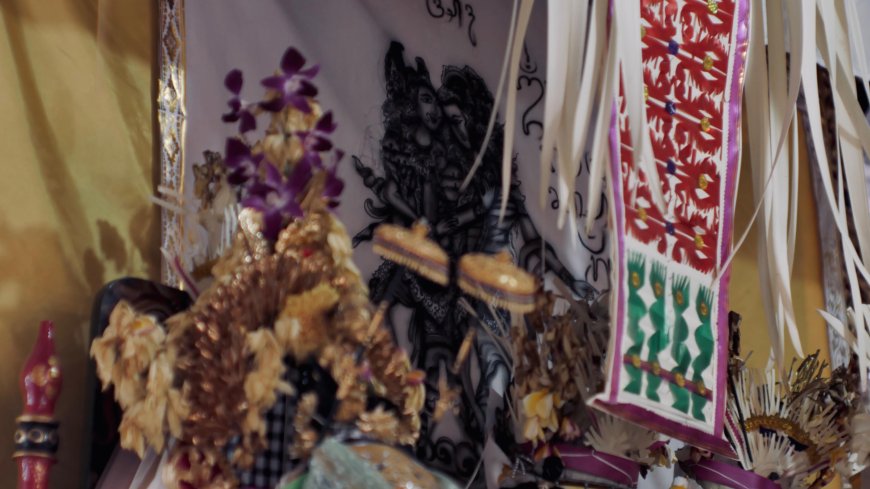
The Painting of Semara Ratih as a Symbol of Purusa and Pradana (Source: Personal Collection)
In the Majejiwan Ceremony, there are significant verses within the Majejiwan dialogue:
1. Creation of the Universe
“Manira makarya bumi, makarya gunung”
Translation: "I am the one who created the earth and the mountains."
This verse reflects God's role as the creator of the physical world, encompassing the land and mountains, which are revered as sacred places.
2. Origins of Life
“Manira sakeng Keling, sakeng Majapahit, sakeng Singosari”
Translation: "I come from Keling, Majapahit, and Singosari."
These three places hold profound symbolism:
- Keling represents life and the creation of mountains.
- Majapahit symbolizes the sea as the source of air creation.
- Singosari signifies the origin of life's seeds and the granary of rice.
3. Content of the World
Isining bhumi: brahmana, ksatriya, wesya, sudra, spatika, ratu, bujangga aji, maka nguni pratiwi, apah, teja, bayu, akasa, saka ungkulan dening raditya, wulan, lintang tranggana.
Translation: "The contents of the earth: priests, warriors, merchants, common people, crystals, kings, holy ascetics, along with the elements of earth, air, light, wind, ether, the sun, the moon, and the stars."
This verse illustrates the diversity of elements on earth, from human beings to cosmic elements, all of which are creations of God.
4. The Process of Purification
“Manira angindang-ngindang sarwa bija, mas, mirah, intan”
Translation: "I sift all seeds, gold, rubies, and diamonds."
This process of sifting symbolizes the purification of the world and its elements, restoring them to their original purity.
5. Ritual of Success
“Yan tan apaselang, tan prasida punang karya”
Translation: "If the Mapaselang ritual is not performed, the ceremony will not succeed."
This verse highlights the importance of Mapaselang as the core of the entire series of rituals.
6. Purity of the World
"Yan tan angampuhang kang mala, papa, pataka, lara, rogha, wighna, tan prasida punang karya."
Translation: "If impurities, sins, misfortune, suffering, and obstacles are not eliminated, the ceremony will not succeed."
This verse illustrates the necessity of cleansing the world from all dangers and hindrances before the ritual can be successfully performed.





